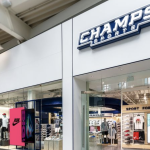Moody’s Ratings has affirmed Topgolf Callaway Brands Corp.’s B1 long-term Corporate Family Rating, B1-PD Probability of Default Rating, and the B1 rating on the senior secured term loan B. The company’s Speculative Grade Liquidity Rating is unchanged at SGL-2. However, the outlook was changed to negative from stable.
Topgolf Callaway Brands is home to the Callaway, Topgolf, Travis Mathew, Ogio, Odyssey, and Jack Wolfskin brands.
The rating agency said in a release that its affirmation reflects Moody’s expectation that Topgolf Callaway’s strong market position in golf equipment, accessories and apparel and golf related entertainment venues and revenue growth from new venue openings will support EBITDA margin, free cash flow, and leverage improvement.
Moody’s said it expects new Top Golf venue openings will drive mid- to high-single digit total company revenue growth over the next 12-18 months. Similarly, Moody’s believes that favorable participation and demographic trends in golf will support consumer demand for golf products, particularly recurring consumer purchases of golf consumables.
However, revenue and EBITDA margin have weakened as consumer demand for corporate events and midweek outings at Topgolf has moderated from peak engagement levels following the pandemic. Moody’s said it expects the EBITDA margin to stabilize and return to growth as the company opens new venues and launches new promotions and innovations to entice consumers into the company’s venues. Topgolf is also investing in operational improvements at existing and new locations to reduce costs and drive EBITDA margin improvement.
Moody’s also noted that golf equipment sales have also moderated after a period of outsized demand but Moody’s anticipates that EBITDA contribution from the golf business will remain good.
Nevertheless, the agency said there are significant risks to Moody’s forecast given the discretionary nature of the company’s end-markets and material cash burden from the company’s sizable lease and debt balance. Overall, Moody’s expects that deleveraging from currently very high levels at 6.6x debt-to-EBITDA (incorporating Moody’s standard adjustments) will take longer than previously anticipated when the company issued its term loan in March of 2023. Moody’s foresees leverage declining to 5.8x by year-end 2025 and below 5.5x by year-end 2026.
Moody’s suggested that leverage could improve faster if an increase in the company’s stock prices triggers a conversion to stock of the convertible notes that otherwise mature in 2026.
The change in outlook to negative reflects Moody’s view that deleveraging to below 5.5x will take longer than previously anticipated and requires good execution of the growth plan. Leverage is elevated due to weaker consumer demand at Topgolf than was expected a year ago and due to the company’s rapidly growing lease obligations to support the new Topgolf facility development. The leases represent a material fixed cost that contributes to execution risk for the venue expansion plans. The company’s leases compound risks that any decline in the EBITDA margin as a result of weaker consumer demand or rising costs could put pressure on free cash flow and reduce the company’s flexibility to fund new development and debt service.
Moody’s said the outlook also accounts for the discretionary nature of consumer demand for both golf related entertainment and golf equipment and accessories that creates execution risk to generating the earnings growth necessary to reduce leverage in a high inflationary environment.
Moody’s changed Topgolf Callaway’s credit impact score to CIS-4 from CIS-3 and the governance issuer profile score to G-4 from G-3. The changes account for increased governance risk as it relates to financial strategy and risk management as a result of the company operating with higher leverage that previously anticipated.
Ratings & Rationale
Topgolf Callaway’s B1 CFR reflects its very high financial leverage particularly given the discretionary nature of golf-related entertainment and golf equipment, accessories and apparel categories. The Top Golf (TGI) business is capital intensive and the use of debt and large lease financing increases the sensitivity of credit metrics to declines in earnings that many result from competition from adjacent or alternative entertainment options or declines in discretionary consumer spending. Low single digit same venue sales growth at TGI facilities open for several years leads to a need for new venue expansion into underpenetrated markets to help drive earnings growth. Topgolf Callaway’s credit profile is supported by its strong market position and good geographic and segment diversification within golf-related categories. The credit profile also reflects Topgolf Callaway’s good liquidity, large scale, and good performance from the golf. The company also has the ability to adjust the level of future investment in Topgolf should market conditions turn negative.
TGI plans to grow its venue base over the next 3-5 years requires significant capital expenditure and funding in excess of operating cash flow. TGI plans to utilize cash, operating cash flow, and advances from leasing entities such as REITs to help fund the expansion. As such, Moody’s expects the company’s leases (approximately $2.9 billion as of December 2023) to increase with the significant fixed charges creating vulnerability to any deterioration in returns on the Top Golf venue business that could arise from shifts in consumer spending, higher operating costs, or competition. Moody’s estimates that free cash flow of around $150 million annually including advances from REITs will allow the company to steadily reduce its $1.2 billion of term loan debt outstanding. The very long dated nature of the leases favorably secures attractive locations but the fixed payments create risk to cash flow if venue performance weakens. Moody’s expects that EBITDA growth will lead to debt-to-EBITDA falling to about 5.8x by year-end 2025 and below 5.5x in 2026.
Factors That Could Lead to an Upgrade or Downgrade of the Ratings
Ratings could be downgraded if operating earnings do not improve, liquidity deteriorates, or ongoing investments in TGI detract from the company’s ability to reduce financial leverage from current high levels. A downgrade could also occur if Moody’s adjusted debt-to-EBITDA is sustained above 5.5x or there is a deterioration in returns on the TGI entertainment business or the gold equipment and apparel business due to shifts in consumer demand, rising costs or increased competition.
Ratings could be upgraded if operating performance is stable or improves across the company’s golf and apparel businesses, and returns on the TGI investments are good. An upgrade would also require the company to maintain good liquidity, generate consistent and comfortably positive free cash flow and improve EBITDA such that debt-to-EBITDA is sustained below 4.0x.
Environmental, Social and Governance Considerations
Topgolf Callaway Brands Corp.’s ESG credit impact score indicates the rating is lower than it would have been if ESG risk exposures did not exist. Governance risk is the primary driver of the CIS score with lesser impact from environmental and social risks. Governance risk is driven primarily by the company’s financial strategy and risk management policies as seen with very high financial leverage from debt financed acquisitions and high funding needs to support Top Golf’s venue growth plans.
Image courtesy Topgolf Callaway Brands














